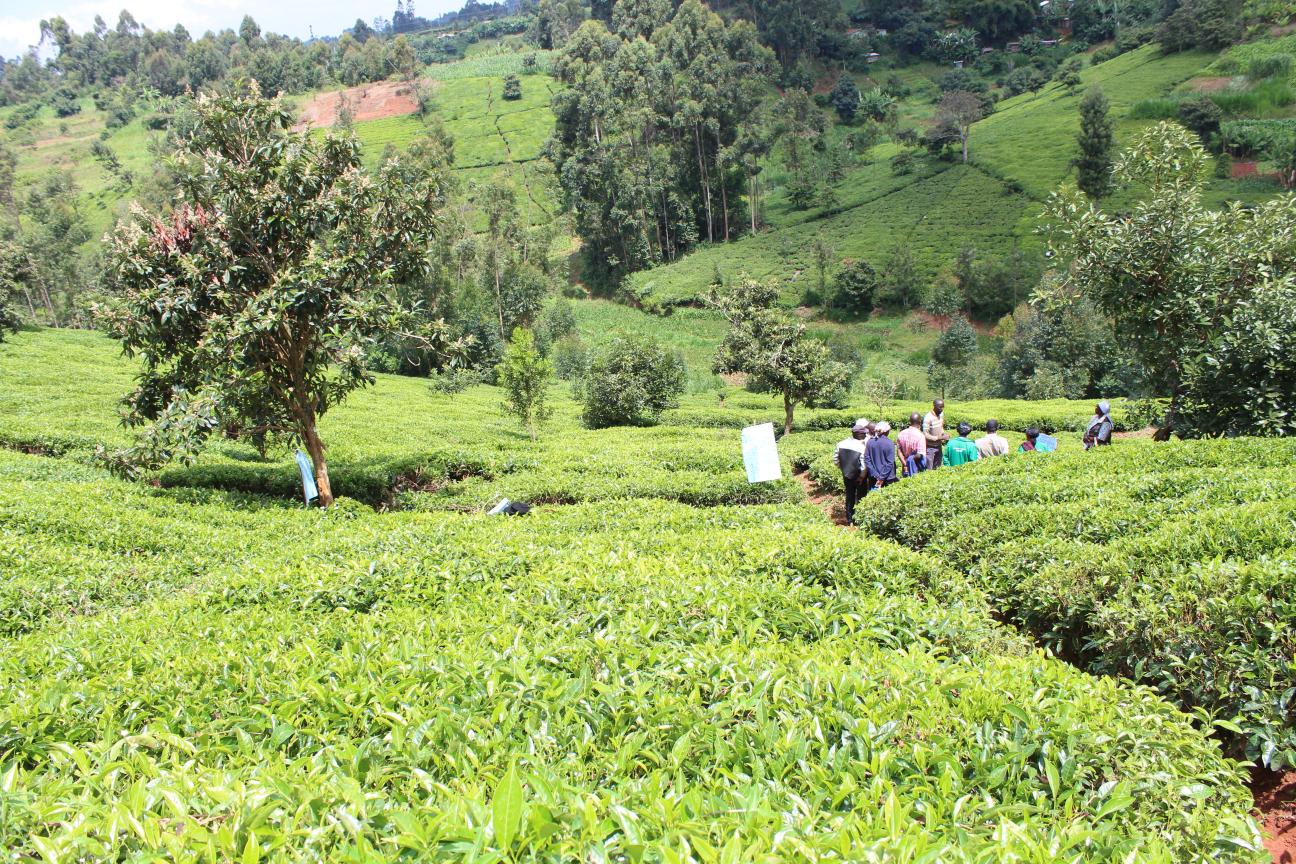
KENYA Tea Development Agency’s ambitious plan to drive access to credit and growth for farmers has received a major boost following a partnership with Cooperative Bank to support smallholder tea farmers.
The lender, which has in recent times enhanced its support for farmers in the Coffee sector, has expanded to the tea industry, with a Sh1.2 billion mobile-enabled credit programme for farmers among other products.
The short-term loans kitty will enable farmers access up to Sh20,000 directly via mobile money, boosting access to credit at a time when the tea sector has faced numerous challenges, including reduced production and exports, hampered by, among others, the recent ban on Kenya’s tea exports to Sudan.
Latest Kenya National Bureau of Statistics quarterly data shows tea production declined by 18.9 per cent, from 168.8 thousand metric tonnes in the first quarter of 2024, to 136.9 thousand metric tonnes in the quarter of this year.
Even so, service sectors and agriculture are expected to recover with growth in credit to the private sector and improved exports.
The move by Coop adds up to its earlier initiatives, which include the support of more than 50,000 farmers across various agricultural sectors, who have benefited from a Sh100 million fund on capacity building and digitisation, spearheaded by the bank.
"Through our comprehensive financial solutions, we continue to empower smallholder tea farmers who form the backbone of Kenya's tea industry, which is a key contributor to our national economy,” Coop Bank managing director and CEO Gideon Muriuki said.
The mobile-enabled financing model is expected to transform how smallholder farmers access capital, providing timely support when it is needed most.
Coop is among lenders with the lowest interest rates following a back-to-back reduction in the benchmark lending rate by the Central Bank of Kenya, currently at 9.75 per cent, having been reduced from 10 per cent last month.
“Average lending rates in the domestic market have continued to decline, while private sector credit growth has recovered modestly,” CBK governor Kamau Thugge noted.
Co-operative Bank of Kenya and KTDA have since partnered to support and empower tea farmers, with Muriuki emphasising the lender's leadership in agriculture.
KTDA has launched a new corporate magazine aimed at articulating its bold vision for the future of the smallholder tea sector, a transformational phase set to run through 2035.
Board Chairman Geoffrey Chege said the magazine will act as a compass for the agency's future strategy and leadership philosophy.
"Our goal is to raise farmer income to levels previously thought unattainable. With the support of the government and strategic partnerships, we believe this is achievable," said Chege.
He highlighted plans to add value to 40 per cent of the tea produced, enhance
digital platforms, and integrate technology to reduce operational costs.
KTDA, which has supported smallholder tea farmers for 60 years, is keen to boost farmer incomes and make the tea value chain more efficient and globally competitive for all its 650,000 affiliated smallholder farmers.
This includes a review of governance models, the
scaling up of agribusiness and agritourism initiatives, and the creation of
strategic business units.
Other priorities include the development of a global KTDA tea brand, he introduction of innovative financing models, and the formation of special-purpose partnerships to mitigate risk.
As a key financial partner for all eight KTDA subsidiaries and the majority of Kenya's tea factories, Co-operative Bank manages a suite of services including payment processing for tea proceeds, working capital financing, and cash-flow support.
“We continue to drive financial inclusion across various sectors, leveraging on digitisation to enhance access to banking services. Our focus on micro, small, and medium enterprises (MSMEs) has empowered businesses through various financial and non-financial services,” Murikui said.
Its Direct Settlement System in the coffee sector has revolutionised payment processes for stakeholders, ensuring transparency and efficiency that directly benefit thousands of coffee farmers.






![[PHOTOS] Boniface Kariuki honoured with flag-draped coffin](/_next/image?url=https%3A%2F%2Fcdn.radioafrica.digital%2Fimage%2F2025%2F07%2Fc7df13cc-0b58-4ec7-b6a4-7e32e1d9ec63.jpg&w=3840&q=100)




